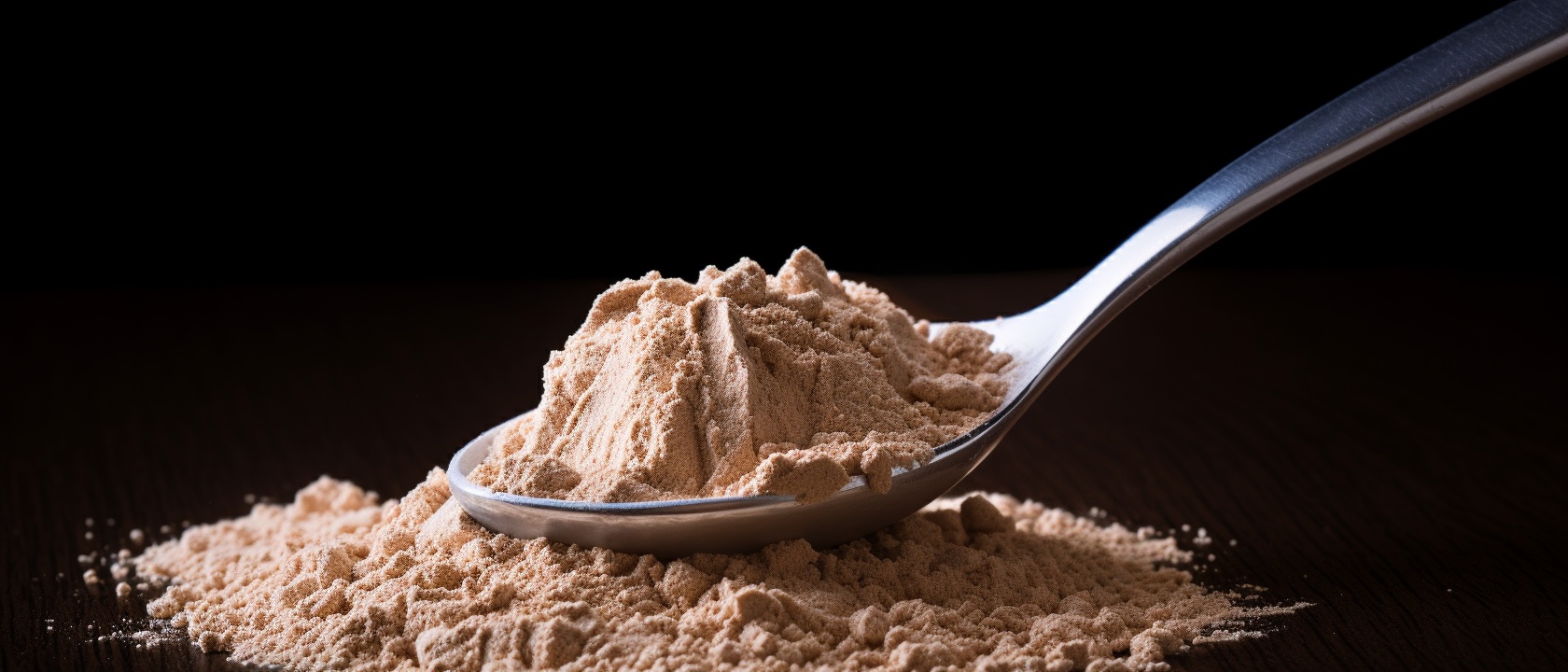You’re at the gym, sweat trickling down your forehead, and you spot someone chugging a neon-colored liquid from a shaker bottle. No, they’re not reliving their childhood with some high-sugar fruit punch. They’re probably sipping on BCAA, a supplement that’s as common in gyms as dumbbells and questionable fashion choices.
So what’s the deal with BCAA? Is it the secret sauce to becoming the next fitness influencer, or is it just another fad that’ll fade away like low-rise jeans? In this article, we’re going to break down what BCAA is, why some people swear by it, and whether you should even care. Buckle up; we’re diving into the world of Branched-Chain Amino Acids.
What the Heck is BCAA?
Alright, let’s cut through the noise. BCAA stands for Branched-Chain Amino Acids. Sounds like something out of a chemistry textbook, right? But don’t zone out just yet. These are three essential amino acids—leucine, isoleucine, and valine. “Essential” here means your body can’t make them on its own, so you’ve got to get them from your diet or supplements.
The “Branched-Chain” Part
The term “branched-chain” isn’t just some marketing gimmick to make it sound cool. It actually refers to the molecular structure of these amino acids. Picture a tree branch, but in molecular form. Why should you care? Well, this unique structure makes them easier to break down and use for energy, especially during those grueling workouts.
Where You’ll Find It Naturally
If you’re not into the whole supplement scene, you can still get your BCAA fix. These amino acids are naturally found in protein-rich foods like meat (especially beef, chicken, fish), dairy (specially egs, milk), nuts (almonds, cashews, brazil nuts), pumpkin seeds, corn, soy proteins, and legumes (chickpeas, lentils, lima beans). So yes, that steak or tofu stir-fry you had for dinner is doing more for you than just satisfying your taste buds.
There you have it—the 101 on what BCAA is. It’s not some mystical substance; it’s science, baby. But before you go running to the nearest supplement store, let’s dig a bit deeper. Stick around; it’s about to get interesting.
Why Do People Swear By It?
So you’ve got the basics down. BCAA is like the cool kid in the amino acid neighborhood. But why do people act like it’s the elixir of life? Let’s break it down.
Muscle Recovery: The Quick and Dirty
You know that soreness you feel after a killer workout? That’s your muscles screaming for some TLC. BCAAs jump into action here. They help speed up muscle recovery by promoting protein synthesis.
In simpler terms, they’re like the construction workers that help rebuild your muscle tissues. Less soreness means you can hit the gym again sooner without wincing at every step.
Energy Boost: The Pick-Me-Up
Ever hit a wall during your workout and feel like you’re running on fumes? BCAAs can serve as a quick energy source.
Remember that unique branched-chain structure we talked about? It allows these amino acids to be rapidly absorbed and used for energy. So, it’s like having a turbo button for those moments when you’re about to call it quits.
Fat Loss: The Skinny
Now, let’s talk about the elephant in the room—fat loss. Some folks claim that BCAAs can help you shed those extra pounds. The idea is that they might suppress appetite and boost your metabolism. But let’s keep it real; BCAAs alone won’t turn you into a lean, mean machine. They’re a piece of the puzzle, not the whole picture.
So there you have it. People aren’t just chugging BCAAs for the fun of it (well, maybe some are). There’s some legit reasoning behind the hype. But like anything that sounds too good to be true, there’s another side to this coin. Keep reading; we’re about to flip it.
The Science Behind the Hype
Alright, let’s get nerdy for a minute—but not too nerdy. We’re not writing a dissertation here. We’re just trying to figure out if BCAAs are the real deal or just another overhyped supplement.
Building Blocks for Your Gains
First off, amino acids are like the Lego blocks of your body’s proteins. When you work out, you’re basically tearing down your muscle tissues. It sounds brutal, but that’s how you grow stronger and more muscular.
BCAAs, particularly leucine, kickstart the process of protein synthesis. This is your body’s way of saying, “Hey, let’s rebuild this muscle better than before.” So, in a way, BCAAs are your personal construction crew.
Mood and Focus: It’s Not Just Physical
Here’s where it gets interesting. BCAAs aren’t just about bulging biceps and washboard abs. They also play a role in producing neurotransmitters, the chemicals that help your brain communicate.
Ever heard of serotonin and dopamine?
Yep, BCAAs have a hand in making those. So, not only can they help you push through that last set, but they can also keep your mood from plummeting into the abyss.
The Studies Say…
Look, you don’t have to take my word for it. There’s a bunch of research out there that backs up some of these claims. For instance, studies have shown that BCAAs can reduce muscle soreness and fatigue.1
But let’s be clear: not all scientists are on the BCAA bandwagon. Some argue that you can get all the amino acids you need from a balanced diet, making supplementation unnecessary for most people.
So, is BCAA the miracle supplement that some make it out to be? Maybe. Maybe not. But it’s not snake oil either. There’s some solid science behind why people include it in their fitness regimen. Just remember, it’s not a magic bullet. It’s more like an extra tool in your toolbox. Got it? Good. Now, let’s talk about the not-so-rosy stuff.
The Flip Side: Is It All Rainbows and Unicorns?
So far, BCAAs sound like the Swiss Army knife of supplements. But hold your horses. Anything that promises the moon and the stars usually has a catch. Let’s get into it.
Potential Downsides: The Fine Print
First off, too much of a good thing can be bad. Overloading on BCAAs can lead to an imbalance of amino acids in your body. And let’s not even get started on the potential gastrointestinal issues. You don’t want to be that person clearing out the gym, do you?
Drug Interactions: The Plot Thickens
If you’re on medication for other conditions, you might want to hit pause. BCAAs can interact with certain drugs, including those for diabetes and Parkinson’s disease.
So if you’re popping pills for something else, consult your healthcare provider before adding BCAAs to the mix. Seriously, don’t play mad scientist with your body.
The Great Debate: Is It Overrated?
Here’s where it gets spicy. Not everyone’s sold on the BCAA hype. Some experts argue that if you’re eating a balanced diet rich in protein, you’re already getting enough BCAAs. They claim that supplementing is like putting a cherry on top of a cake that already has cherries. Redundant, right?
So, is BCAA a game-changer or just another player in the crowded supplement market? The jury’s still out. But one thing’s for sure: it’s not a one-size-fits-all solution. Your mileage may vary, as they say.
Alright, you’ve heard both sides of the story. Now comes the million-dollar question: To BCAA or not to BCAA? Stick around; we’re diving into that next.
To BCAA or Not to BCAA: The Million-Dollar Question
You’ve waded through the science, the hype, and the caveats. Now you’re probably wondering, “Should I jump on this BCAA bandwagon or not?” Let’s break it down.
Who Should Consider Taking It?
First off, who are you in the fitness universe? Are you a casual gym-goer, an endurance athlete, or someone who can’t tell a dumbbell from a doorbell?
If you’re pushing your body to its limits regularly, BCAAs might be worth considering. They can be particularly useful for those who work out fasted or are on a calorie-restricted diet.
But if your idea of exercise is lifting a remote control, you might want to pass.
Timing Is Everything
When it comes to BCAAs, timing can make a difference. Some folks swear by taking it before a workout to boost performance and reduce fatigue. Others prefer sipping it during the workout for sustained energy. And then there are those who take it post-workout for recovery. Experiment and see what works for you, but don’t go overboard. Remember, more isn’t always better.
Alternatives: The Road Less Traveled
If you’re not sold on BCAAs, there are other paths to the same destination. Whole foods like chicken, fish, and legumes are excellent sources of branched-chain amino acids.
And let’s not forget other supplements like whey protein that offer a broader spectrum of amino acids. Sometimes, the old ways are the best ways.
Conclusion & Further Reading
So there you have it. BCAAs are not some magical elixir that will turn you into a superhero. They’re a tool—one of many in your fitness toolbox. Whether you decide to use that tool is entirely up to you. Just remember, supplements are meant to supplement, not replace, a balanced diet and a solid workout routine.
Research:
- Shimomura, Yoshiharu, Taro Murakami, Naoya Nakai, Masaru Nagasaki, and Robert A. Harris. “Exercise promotes BCAA catabolism: effects of BCAA supplementation on skeletal muscle during exercise.” The Journal of nutrition 134, no. 6 (2004): 1583S-1587S.
- Blomstrand, Eva, and Bengt Saltin. “BCAA intake affects protein metabolism in muscle after but not during exercise in humans.” American Journal of Physiology-Endocrinology and Metabolism 281, no. 2 (2001): E365-E374.
- Kim, Dong-Hee, Seok-Hwan Kim, Woo-Seok Jeong, and Ha-Yan Lee. “Effect of BCAA intake during endurance exercises on fatigue substances, muscle damage substances, and energy metabolism substances.” Journal of exercise nutrition & biochemistry 17, no. 4 (2013): 169.
- Hormoznejad, R., Zare Javid, A. & Mansoori, A. Effect of BCAA supplementation on central fatigue, energy metabolism substrate and muscle damage to the exercise: a systematic review with meta-analysis. Sport Sci Health 15, 265–279 (2019). ↩︎

